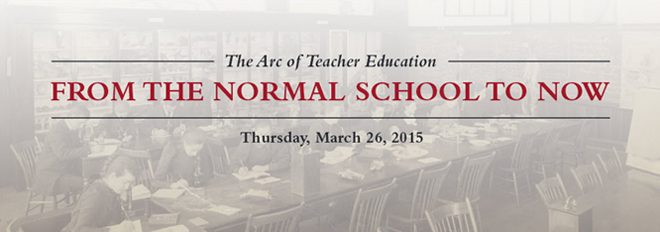Presentation Title
Shuji Isawa and the Legacy of International Teacher Education of Bridgewater Normal School
Session Name
Concurrent Session 2. Exporting the Normal School Model
Start Date
26-3-2015 2:00 PM
End Date
26-3-2015 3:30 PM
Abstract
One of the most eminent international students in the history of Bridgewater State University (formerly Bridgewater Normal School) is Japanese educator Shuji Isawa who studied from 1875 to 1877. While both my colleague Thomas Turner and I have briefly explored his roles at Bridgewater in previous studies, a fuller understanding of his life in the United States and the influence of his schooling at Bridgewater Normal School remain to be further studied. In this paper I attempt to provide a more comprehensive understanding of the efforts of Japanese westernization through the Bridgewater Normal school system, the early encounters between Japanese students and American education system in the 1870s, and the publications and activities of Isawa in Japan based on the Bridgewater model. I will utilize our University archives and publications as well as more recent archival resources from Isawa's hometown in Ina city and the University of the Arts in Tokyo where he founded in 1887. Through his contributions in elementary education, music education, special education, and physical education, Isawa paved the way for modern teacher education in Asia and more recent engagement with Asian studies at Bridgewater State University.
Shuji Isawa and the Legacy of International Teacher Education of Bridgewater Normal School
One of the most eminent international students in the history of Bridgewater State University (formerly Bridgewater Normal School) is Japanese educator Shuji Isawa who studied from 1875 to 1877. While both my colleague Thomas Turner and I have briefly explored his roles at Bridgewater in previous studies, a fuller understanding of his life in the United States and the influence of his schooling at Bridgewater Normal School remain to be further studied. In this paper I attempt to provide a more comprehensive understanding of the efforts of Japanese westernization through the Bridgewater Normal school system, the early encounters between Japanese students and American education system in the 1870s, and the publications and activities of Isawa in Japan based on the Bridgewater model. I will utilize our University archives and publications as well as more recent archival resources from Isawa's hometown in Ina city and the University of the Arts in Tokyo where he founded in 1887. Through his contributions in elementary education, music education, special education, and physical education, Isawa paved the way for modern teacher education in Asia and more recent engagement with Asian studies at Bridgewater State University.
